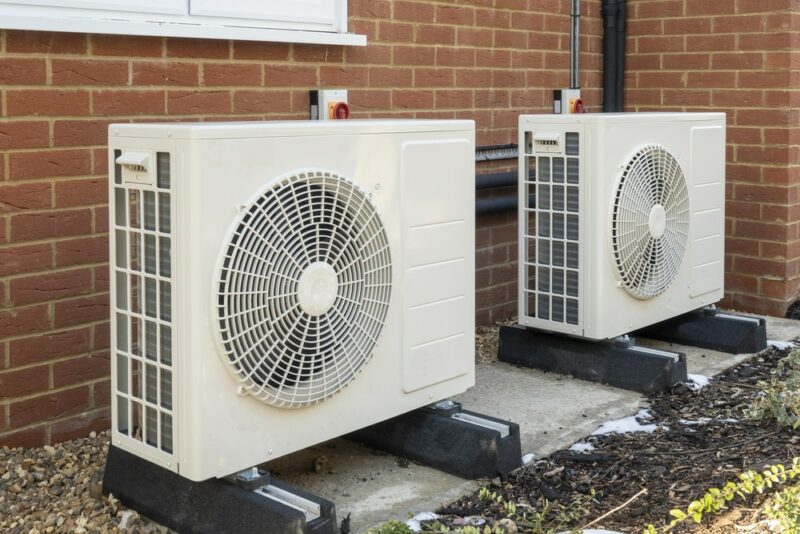Heat Source Pump Grants Coming Soon for Landlords
As confirmed in the recent Autumn 2021 Budget, landlords have been included in the government’s heat source pump grant scheme, which will provide access to grants of £5,000 to help replace gas boilers with low-carbon air or ground source heat pumps from April 2022.
As confirmed in the recent Autumn 2021 Budget, landlords have been included in the government’s heat source pump grant scheme, which will provide access to grants of £5,000 to help replace gas boilers with low-carbon air or ground source heat pumps from April 2022.
The government’s Heat and Buildings Strategy will make it possible for landlords to access grants of £5,000 to replace gas boilers with heat pumps from April 2022.
Gas central heating systems are used in the majority of rental properties. The government has pledged to achieve net zero carbon emissions by 2050, and as part of this strategy, gas boilers will no longer be sold after 2035.
Air source and ground source heat pumps are viable alternatives, but they are considerably more expensive than a gas boiler, with an investment in the region of £6,000 to £18,000 required, depending on the size of the property that needs to be provided with heating and hot water, and the type of device chosen. So, whilst the £5,000 grant may seem generous, in actual fact, in many cases, it will only form a small proportion of the required outlay.
The Energy Saving Trust estimates that a typical air source heat pump installation will set landlords back around £6,000-£8,000, whilst ground source systems can cost between £10,000 and £18,000.
NRLA critical of the scheme
The National Residential Landlords Association (NRLA) has criticised the government’s plans, saying it has “again failed to provide the clarity needed by private landlords to plan for the future of their businesses”.
NRLA chief executive Ben Beadle said, “Eighty per cent of private rented households have gas central heating and replacing such systems will be both costly and vital to achieving net zero.
“Providing grants to assist householders and landlords to install heat pumps is a welcome step, but much more is needed to make the Government’s targets achievable.
“Once again private landlords have been left waiting for the government to publish details of the standards they will be required to comply with, the deadlines they must meet, and how such work should be funded.”
How does a ground source or air source heat pump work?
Heat pumps have been in use for several decades. They take heat from the air or the ground, and use it to heat the likes of radiators, underfloor heating, warm air convectors and hot water.
A heat pump extracts heat from the air, or the ground, in the same way that a fridge extracts heat from its interior. It can obtain this heat even when it is as cold as -15 degrees Celsius. The heat is converted into a fluid, which then passes through a compressor where its temperature is increased. The higher temperature heat then moves to the heating and hot water circuits of the property.
What are the ground and air source heat pump pros and cons?
The heat extracted using a heat pump is constantly being naturally renewed, which means that energy costs will be lower, and carbon emissions will also be reduced. However, because electricity is required to power the pumps, the system cannot be classed as carbon neutral, or completely ‘green’.
The fact remains though that with a heat pump, carbon emissions will be reduced in comparison to using a gas boiler and, whilst the unit will need an annual service, it is virtually maintenance-free.
Consideration will have to be given though to the space required for the external unit, which needs to be placed outside. Whilst air source heat pumps are smaller than ground source heat pumps, it is still necessary to find the right amount of space on an outer wall, or on the ground. This can sometimes prove challenging for properties in urban areas.
A question often asked is, are air source heat pumps noisy? The answer is that, providing the unit is installed and maintained correctly, there should be no disturbance. However, the external unit is by no means silent, so some noise should be expected.
There is also the visual aspect to consider. Ground source heat pumps are less intrusive due to the fact that most of the system is fitted underground. Air source heat pumps are mostly above the ground, however, and will therefore be on show.
Should landlords convert to ground or air source heat pumps?
Ultimately, something has to be done to reduce carbon emissions, and with gas boilers being phased out over the next few years, an alternative method of providing heat and hot water for homes has to be explored. The heat source pump grants provided by the government are a step in the right direction, but it remains to be seen whether more help will be available for landlords in improving the energy efficiency of their properties.
It is worth taking time to compare the pros and cons of the different types of heat pumps, and to take advice on the best type of heating and hot water system for your particular type and size of property.
Change is inevitable as efforts to reduce climate change ramp up. But there is one thing that will provide certainty… the homes2let guaranteed rent scheme.
The homes2let guaranteed rent scheme protects landlords against the risk of rent arrears, whilst also providing a comprehensive property management service, taking all the hassle out of the day to day running of your property.
To learn more about how our rent guarantee scheme works, please get in touch.
Related Insights

How to Market Your Rental Property: A Landlord’s Guide
Getting your marketing right is vital if you’re going to make your buy to let property stand out in the crowd. Successful adverting ramps up interest, attracting the right tenants and giving you more choice over the best renters. Here we share our top tips on how to market your rental property to help you find the best tenants faster, and boost your rental yield in the process.

Understanding the Basics of Charging for Tenant Damage
Understanding the difference between wear and tear and actual damage is key to determining fair charges. By following the guidelines outlined in this article, you can confidently navigate the process of handling tenant damage and maintain a successful rental property business.

Deposit Replacement Schemes Explained
It is often challenging for prospective tenants to find the necessary deposit to secure a property. Even though the Tenant Fees Act 2019 capped deposits at five weeks’ rent, it can still be a considerable sum to gather together. It is no wonder then that the deposit replacement scheme has become a viable alternative for tenants. But how do these schemes work, and should you be relying on them as a landlord?







